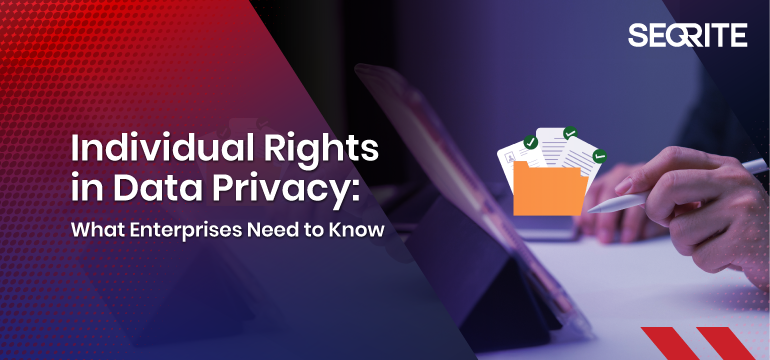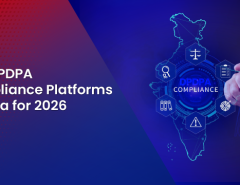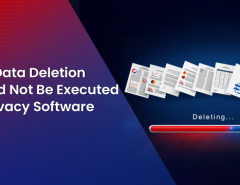Every click. Every swipe. Every “Add to Cart.”
Behind each digital interaction lies a fragment of consumer data — a piece of someone’s identity in the connected world.
For enterprises, the real question is no longer what data they collect, but how responsibly they manage it.
Enter the Digital Personal Data Protection (DPDP) Act, 2023 — India’s landmark privacy law that puts individuals, not organizations, at the center of the digital ecosystem.
Privacy today is no longer a compliance checkbox. It’s a business imperative.
The DPDP Act isn’t just about granting individuals more control over their personal data — it’s about redefining how organizations build trust, manage risk, and gain competitive advantage in a privacy-conscious marketplace.
India’s Privacy Journey: From Afterthought to Fundamental Right
India’s journey toward robust data privacy has been long and transformative.
2000s: The Early Days
The IT Act of 2000 focused on enabling e-commerce, not safeguarding privacy. While provisions like Section 43A addressed data mishandling, enforcement remained limited.
2017: The Big Bang Moment
The Supreme Court’s landmark Puttaswamy judgment elevated privacy to a fundamental right under Article 21. As Justice D.Y. Chandrachud declared, “Privacy is intrinsic to the dignity of the individual.”
2017–2023: The Drafting Years
Following the Justice Srikrishna Committee’s recommendations, multiple draft bills, and over 22,000 public comments, India finally enacted the DPDP Act in August 2023.
It took over two decades, but India has now entered the era where digital rights are recognized as citizen rights — and enterprises are key enablers of that change.
Why Consumer Rights Matter to Enterprises
The DPDP Act shifts the balance of digital power, placing individuals’ privacy at the heart of governance. For organizations, this evolution has significant operational, reputational, and strategic implications.
Trust = Market Share
Brands that embed privacy into their core values gain stronger customer loyalty and differentiation in competitive markets.
Compliance = Risk Mitigation
Non-compliance brings not only regulatory fines but also reputational damage — eroding customer confidence and investor trust.
Transparency = Retention
Open communication about data usage builds credibility, reducing churn in high-stakes sectors like banking, healthcare, and e-commerce.
Respecting consumer privacy isn’t just a legal necessity — it’s a strategic business advantage.
Key Provisions of the DPDP Act: What Enterprises Need to Know
The rights granted to individuals under the DPDP Act translate directly into compliance obligations for organizations. To uphold these rights, enterprise leaders must ensure systems, teams, and technologies are aligned.
- Right to Information
Individuals can request clarity on how their personal data is collected, processed, and shared.
→ Enterprises must maintain comprehensive data inventories and transparent privacy notices that are easy to access and understand. - Right to Correction & Erasure
Individuals can demand corrections or deletions of their personal data.
→ Organizations need agile data governance frameworks capable of executing modification or erasure requests quickly and accurately. - Right to Grievance Redressal
Complaints can be escalated to the Data Protection Board of India if they remain unresolved.
→ Building responsive grievance-handling mechanisms helps enterprises prevent regulatory intervention and preserve customer trust. - Right to Nominate
Consumers can authorize another person to manage their data rights.
→ Businesses, especially in finance and healthcare, must prepare for data rights transfers and ensure seamless continuity. - Right to Withdraw Consent
Users can withdraw consent at any stage.
→ Marketing and customer experience teams need dynamic consent management tools that respect evolving customer preferences in real time.
The Strategic Risks of Non-Compliance
Enterprises that fail to act decisively face risks far beyond monetary fines.
- Financial Exposure: Hefty penalties and post-breach remediation costs.
- Brand Erosion: Loss of consumer trust and reputational credibility.
- Operational Disruption: Investigations, audits, and potential restrictions on data usage.
- Competitive Disadvantage: Falling behind privacy-mature competitors that leverage compliance as a brand differentiator.
In a market where data integrity is synonymous with brand integrity, non-compliance is not an option.
Turning Compliance into Competitive Edge
Progressive enterprises view data privacy not as a regulatory burden but as an enabler of long-term growth, trust, and innovation.
Here’s how industry leaders are translating compliance into strategic advantage:
Privacy by Design
Embed privacy and security principles into every process, product, and platform — from conception to deployment.
Leveraging Privacy & Consent Management Platforms
Use technologies such as Seqrite Data Privacy to discover, classify, and secure sensitive data while automating compliance with data principal rights requests.
Data Minimization & Security
Collect only what’s necessary. Strengthen data protection through encryption, anonymization, and restricted access controls.
Proactive Governance
To ensure data protection extends across the value chain, conduct regular audits, train employees, and assess third-party compliance.
Building a Privacy-First Enterprise
The DPDP Act is not a one-time compliance exercise but a paradigm shift in digital business governance.
Organizations that adapt early and decisively will:
- Build trust at scale with customers and partners.
- Demonstrate resilience in the face of regulatory uncertainty.
- Unlock new opportunities for differentiation and innovation.
In the digital economy, respecting consumer data rights is not just about compliance — it’s about protecting your brand, enhancing competitiveness, and sustaining growth in a trust-driven world.
Partner with Seqrite Data Privacy to simplify DPDP Act compliance, automate data governance, and earn the trust of your customers in every interaction.




